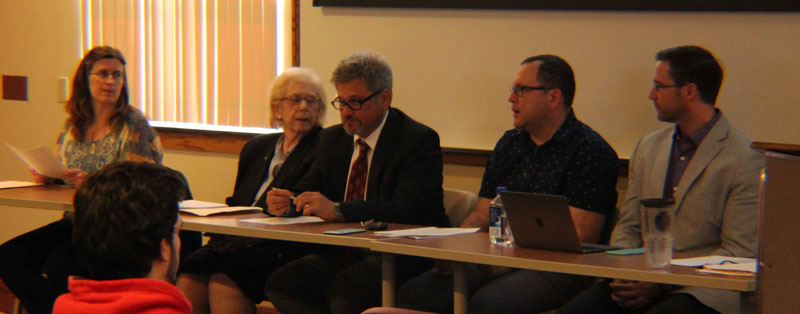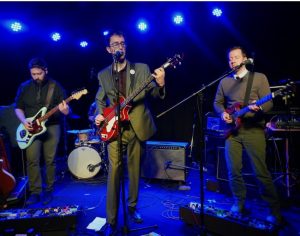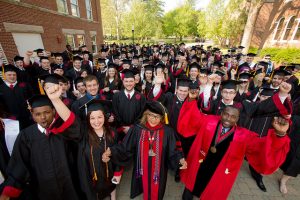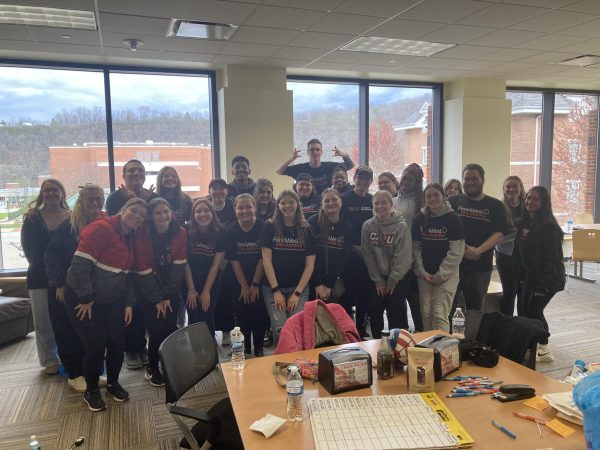Cal U Climate Change Task Force
May 2, 2016
On April 19, twenty Cal U students gathered for the Cal U Climate Change Task Force. Environmental and biological science, earth science, political science, psychology, and history departments were each represented by Cal U Faculty. Students listened to and inquired about multiple perspectives of the global climate crisis.
Dr. Kauffan of the Earth Science department was the first to address the problem. He noted that global climate, “changed, is changing, and will likely continue to change.” He recognizes current rising sea levels, which are likely to cause cooling in some regions while the globe as a whole becomes hotter. It is important, Kauffman says, to understand the difference between short-term weather and long-term climate.
Dr. Majcen, professor of Earth Science, discussed climate change’s effects on humanity. Of Earth’s most dangerous weather conditions, including famine, tornados, and draughts, heat waves kill the most people, about 20,000 to 30,000 annually. Heat waves are likely to increase in number and severity. They also threaten the world’s food supply, and global stockpiles are only large enough to provide food for 20 to 30 days. Even many of the world’s richest countries lack resources to provide adequate help when heat waves occur.
Dr. Bocetti examined climate change’s threat to biodiversity. Audience members were reminded of Planet Earth’s dismal polar bear scene when Bocetti discussed polar bears’ difficulty hunting without enough ice. Coral reefs, too, are at risk since rising temperatures threaten life-supporting algae. Other species, such as the Golden Wing Warbler, adjust their internal clocks to weather conditions. “Species do not have time to evolve to these changes, and they have nowhere to go,” explained Bocetti.
Despite the clear threat of climate change, humans tend to lack motivation to care for their environment. Dr. Slaven discussed the history of climate change, beginning at the most basic levels of development for more food and population growth. “When we exploit more, we use more, we want more, and we tend to grow our population more, Slaven explained. Environmental harm is not new to humanity; medieval London is well-known for its cover of Smog, and the Chernobyl disaster could have been easily avoided. “We wait until a crisis happens, and then we bravely react,” said Slaven. This strategy will not work well with global warming.
Acknowledging climate change is the first step to combatting it. However, an individual’s acknowledgement is very dependent on political beliefs. Dr. Blumberg explained that the Republican and Democratic perceptions of climate change were extremely different. She noted that 91% of oil and gas campaign contributions go to Republican candidates. Additionally, she noted 77% of Liberal Democrats believe that climate change was caused by humans, as opposed to 22% of Conservative Republicans. Also, 65% more Liberal Democrats expressed concern.
Psychology plays an important role, too, as discussed by Dr. Meuller People are likely to avoid arguments that make them feel guilty about hurting the planet. Confirmation bias makes people likely to avoid acknowledgement of environmental harm. Often, the bystander effect convinces people not to act in support of the environment without support from their peers.
The first step to fighting climate change is to education. Many schools promote environmentalism sustainability. Small, personal effort and corporate responsibility can prepare the world for a better tomorrow. Recognizing climate change as a dangerous and human-caused problem allows us to realize solutions.


























